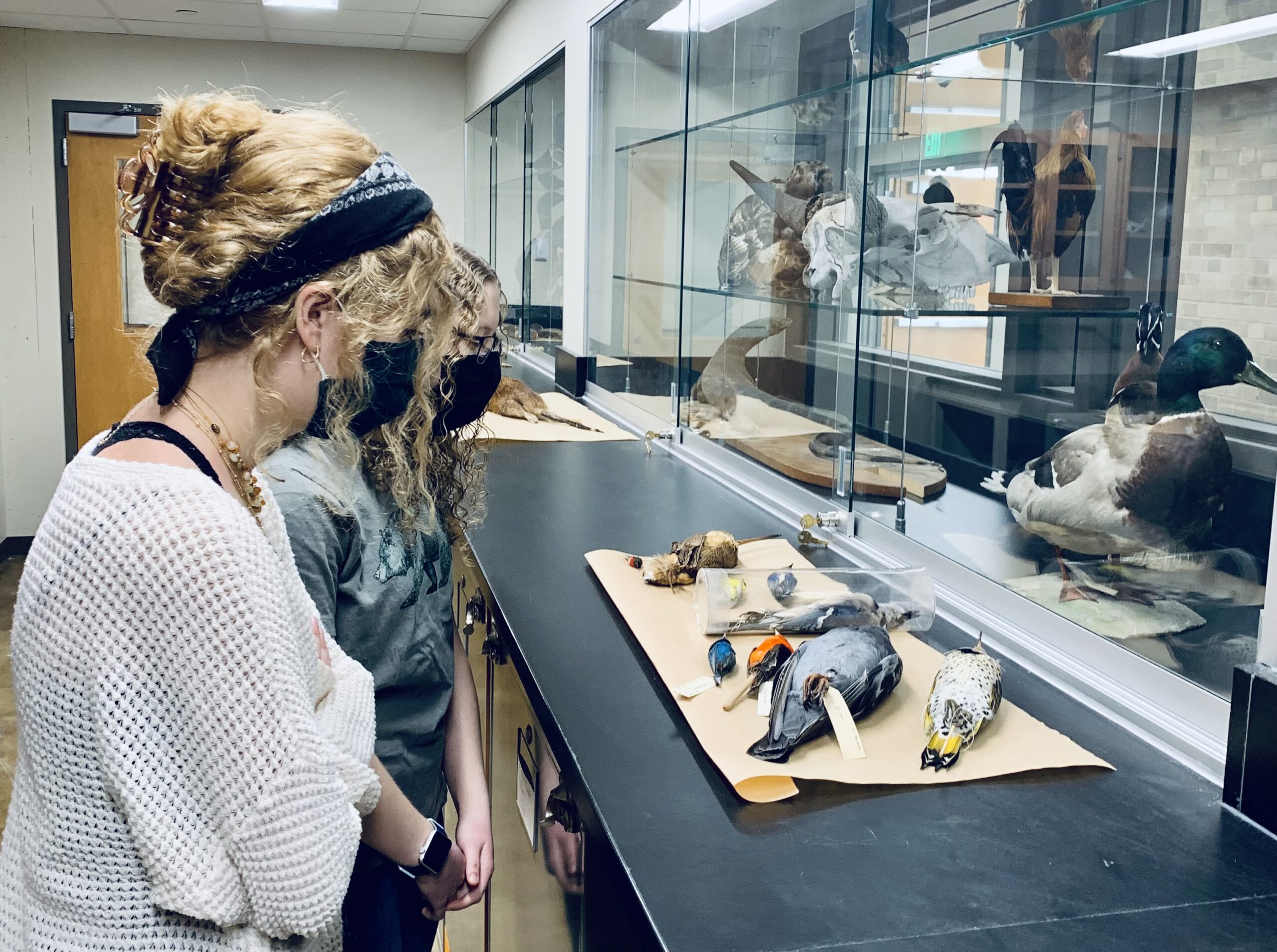When you first think about museums, what do you picture? Paintings? Ancient artifacts? Maybe a natural science museum, complete with dinosaur fossils? Taught by biology instructor Katie Peterson ’10, students in the January Term course “Museums Matter” are exploring a diverse array of museums, ranging from exhibits in the Twin Cities to collections right here at Gustavus.
January Term courses let students spend a month immersing themselves in the world of a single subject that interests them. “As I was looking through the description of each J-Term class, I realized that I really wanted to continue my education in the world of museums,” said Mya Hanson ’25. “I look forward to seeing the work that goes into these institutions behind the scenes, to make them the incredible places we all know and love today.”
The course includes a mix of virtual meetings with conservators, explorations of Gustavus collections, and off-campus visits to institutions such as the Bakken Museum.
A central theme is seeing museums as more than tourist attractions, but as a source of knowledge that makes an impact beyond the world of glass boxes and dioramas.
“I wish people knew that museums and the artifacts within the collections are meant to be used, admired, revisited, and questioned,” said Peterson. Her background is in natural history collections, having added specimens from Craters of the Moon National Monument and Preserve to the Stillinger Herbarium at the University of Idaho.
By learning more about natural history collections, biochemistry and molecular biology major Kristin Simphoukham ’24 has a newfound appreciation for their role in modern-day research. “For example, we can use specimens to study the evolution of infectious diseases and make comparisons with emerging diseases. These collections have a lot of practical uses and are not just nice to look at, which I hadn’t previously thought about.”

Simphoukham is excited to learn about more specialty career opportunities in science, such as working in a natural history museum. “We get a lot of opportunities to tour museums and ask the directors and curators plenty of questions,” she said. “I’ve always thought about museum curation as an exciting job and I’m looking forward to learning more about it and deciding if it would be a good fit for me!”
Students are able to learn about museum curation not just by talking with curators, but by trying it out themselves. Through individual service learning projects, students gain practical, hands-on experience working in collections. “I’ve gotten to look through some of the specimens to create a display in Nobel Hall, and most of the stuff in there is very fascinating,” said Simphoukham, who is volunteering in the Gustavus Herbarium.
Other students are volunteering with the Art Center of Saint Peter, the Nicollet County Historical Society, and other various Gustavus collections, including the College and Lutheran Church Archives, the Geology Museum, Animal Care & Husbandry in the Department of Biology, and the Nobel Hall Greenhouse.
January Term courses lend themselves to learning experiences both inside and outside the classroom. By taking a month-long deep dive into the world of museums, students have emerged with a newfound appreciation for the role of museums in society.
“The biggest takeaway I have gained so far from this class is that museums are not just buildings that hold artifacts for our entertainment,” said Hanson. “They are spaces for us to come together and grow in our love and appreciation for other cultures and forms of life.”
